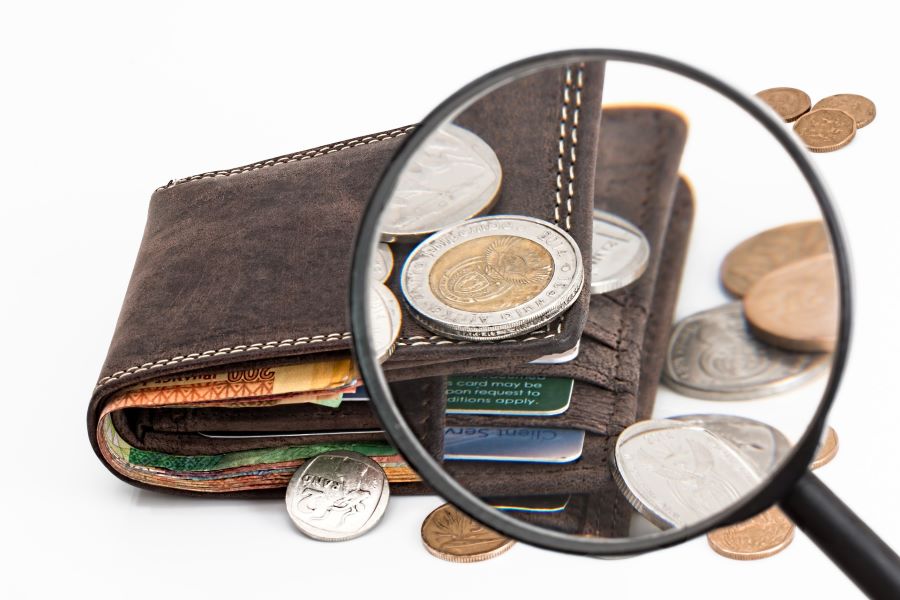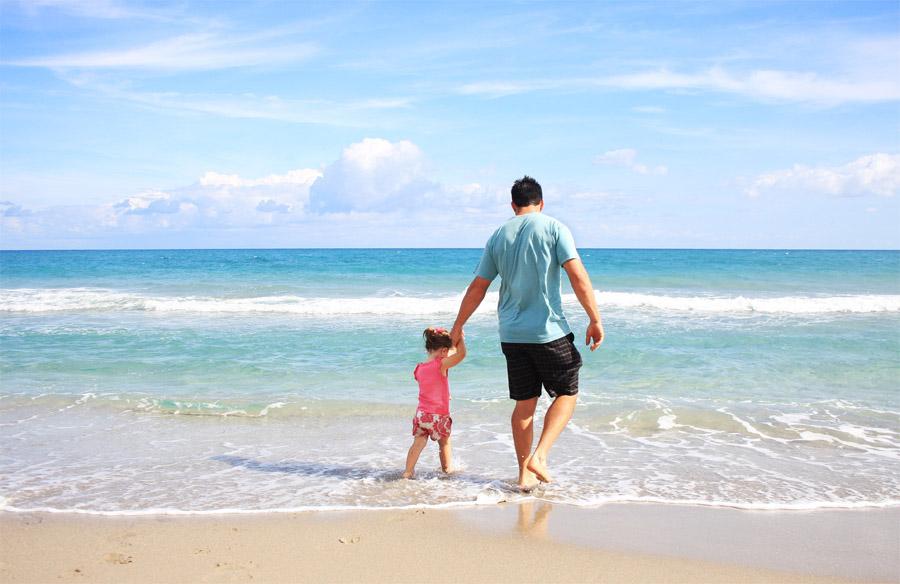
Can you reach financial independence through frugality alone?
Yes, with some caveats. A higher income certainly helps, but it doesn’t matter how much you earn if you don’t save and invest any of it.
Deni brings on Jen Smith from Modern Frugality to talk about creative ways to save, and how Jen is pursuing financial freedom.
Video Broadcast Version
Audio Podcast Version
Also available on iTunes, Stitcher, and wherever else you listen 🙂
Resources Mentioned in This Podcast & Video:

Denise: Hi, everyone, and welcome to Spark Rental Facebook Live and podcast, as you see, Brian is not here. We have a guest and I’m excited about our guest, Jen Smith from the. I lost my frugal friends. That’s what it is. Frugal Friends podcast Sorry. This week, again, as I said, Jen Smith is a personal finance writer and co-host of Frugal Friends podcast, and I was excited. I was reading some and I have listened, and you and your husband paid off seventy-eight thousand dollars of debt in two years, which is phenomenal. But before we jump in, I just want to find out where everybody is joining in from. And again, if you have any questions for me or Jen, please just pop them in the chat. This is an interactive thing. We don’t sit here and just lecture, lecture, or lecture. And I also want to remind everyone that Thursday, Brian, and I are doing a free masterclass. We’re not selling anything on nine alternative real estate income streams. And I think with today’s real estate market, that is probably a thing to keep an eye on. I’m going to throw the link in there to join if you guys want. And Tara, who is our social media manager and everything else, says, Hi, Jen, hi. So, with all of this, Jen, I want to thank you for joining me today. I’m excited about learning about this because I know I’m going to learn with everybody else. So, can you just start off and tell us a little bit about yourself how you got started? I read that you started out as being, you were an acupuncturist, so tell us how you got where you got.
Jen: Yeah. Well, acupuncture school is how I got my $50000 of debt that I had to pay off and then getting married added about twenty-four thousand. And with everything in total, it was we had $78000 of debt. Wow. And yeah, which was pretty overwhelming. Seeing how when I got married, my husband was unemployed, and I only made like thirty-five thousand a year take home. So, I thought we were going to be in debt forever. I just didn’t see another way. So that’s I started where most people start. Like with their debt, most people think they’re going to have debt forever. And then it took like my fiance at the time, like telling me to dream about what our future could be like, like what I really wanted to do. Yeah. And so, I definitely wanted to live differently than my parents did. It was very paycheck to paycheck. I wanted to foster eventually, which I know is very time consuming and emotionally strenuous. And so, I didn’t want to be tied to the anxious and negative emotions that I tied with my debt. I didn’t want to be also tied to those, as well as the financial ties of having to work to pay probably almost a thousand dollars, maybe more per month, just in debt payments for four decades.
Denise: You said, Foster, you want to take in foster children.
Jen: Yeah, eventually we would. I have a two-year-old son right now, and so one day we would like to and sometime after he gets potty trained. Gotcha. But yeah
Denise: I Went down that route. That’s why I asked. Yeah, I had some foster kids in my life. It’s awesome.
Jen: That’s awesome. Yeah, I worked in Group Foster Homes for several years. So, but yeah, like that, that’s the kind of stuff that that motivated me to think, OK, if we do this and really buckle down for five years, then that could free up so much mental and emotional energy and freedom for the next 50, 60, 70, however many years we have left. So that was really the catalyst of my getting financially savvy, and at first, I thought I could out earn my, you know, lifestyle and pay off extra debt by working extra and several months in, I got shingles from all of the stress. Yeah. So, I knew overworking myself was not going to be sustainable. And so that’s when I started to get interested in saving money and controlling my spending. And I realized that my because I was in a, you know, the scarcity mindset that most middle-class children are in where we, you know, I buy generic because I can’t afford name brand, but I also buy Starbucks every other day.
Denise: Starbucks always seems to come up and. It is,
Jen: Yeah, yeah, it’s I don’t know why, but so there was just like a disconnect of what I could afford, what I wanted to buy. So, I found that I was I thought I couldn’t cut any more of my spending because I was already like buying generic. But I realized that there was so much of my spending that was impulsive, mindless, or habitual. And so, I really got interested in that area and that led me to start my first blog and then now a podcast, frugal friends that I host with my really good friend, Jill.
Denise: Very cool. Now you must have seen a lot of stories of people that were successful in this. I have to feel good. I mean, that’s.
Jen: Yeah, it was I mean, debt payoff stories are anybody’s success story is an inspiration, I’m sure it’s how many people got into real estate is seeing, like people creating passive income, quitting their jobs, like living off of flipping and rentals and stuff. So, success stories like definitely played a role in me, beginning to believe that I could do like what we did and we eventually we did. We thought it was going to take five years, but it actually took us two years to pay off seventy-eight thousand just because when we got rolling, everything snowballed. It’s like it takes you a long time to get used to it. And then once you do, it’s kind of just like goes off. So that’s how it was for us, and it turned out to be much quicker than we anticipated.
Denise: So, let me ask you this what would you say are your top best tips for somebody embarking on financial independence and trying to go for a frugal life?
Jen: Mm hmm. Most people going for financial independence are already pretty frugal. They tend to be like a more frugal type of person. We have a lot of fi seekers in our frugal friend’s community, on Facebook and on our membership. And so, we love people on fire where we’re not personally there because I love working and I just could never see myself not working. But I do. I mean, I love the idea of being financially independent earlier than normal. So, I think for most fi people, I think what I have to tell them is to almost be less frugal. I think we usually equate frugal with cheap and so, so often in the fire community. Frugality is a race to the bottom. It’s how little can I spend; how much can I increase my savings rate? And we almost do frugality at the expense of other people, whether it’s people in our lives or people we don’t even know just going towards this race to the bottom. And it’s something like that. You have to drill and remind that frugal does not equal cheap. Cheap is a disservice to either those around us, like our family or friends or coworkers, and it can also be a disservice to people internationally. So, when you buy fast fashion, the workers that make those garments, how are they being treated? You’re buying that fast food. How are the employees of this companies being paid stuff like that? Yeah. And people, people will forego vacations.
Denise: So, I think that’s funny somebody. Christina just said, no vacation. Yeah, yeah. Can actually take. There are ways to do it. I mean,
Jen: Yeah, you can definitely like we love travel hacking. A travel hacking is an amazing way to take vacations frugally. So, I think kind of separating frugal from cheap and saying, what are the things that I value? What are the things that I really love and spending lavishly on those things without guilt? Because that can be kind of like guilt inducing, too when you spend any money, because it’s like lowering your savings rate. So, to be spending without guilt and the things you really, really love and identifying what those things are, putting those things in your budget without guilt and then figuring out what are the things you don’t care about and just completely eliminating those things from your budget.
Denise: Now on your podcast, do you provide like creative ways to do this, like actual, you know, plans on how to do these things in different ways, like whether it’s your food bill, your clothing vacations?
Jen: Yeah, we’re big proponents that there’s no one right way to do frugality. You kind of have to. We say we live in the radical middle because we don’t fall on either side of like we. I buy anything I want and just I’ll become an entrepreneur and make, you know, half a million dollars. We also don’t, you know, lie on the side of living like we’re in the Great Depression, right? We’re in this radical middle that nobody likes to talk about, and it’s different for everyone. And so, we try to cover topics and we try to cover all the sides of the topic so that you can find what’s right for you. So, we do have some like specific how to save money on moving or how to save money on energy costs or something. Those are kind of a few recent ones, but then we talk a lot about spending psychology. You like, right? Yeah, right now we’re running a values-based budgeting challenge in our membership, and we’re our members are going through and finding their core values and tying them back to every area of budgeting. So not just the expenses, but also how you earn the income because the income might be one line on your budget, but it’s the most important line. So that and wealth building, because investing, you know, should also be a line on your budget. So, we’re trying to connect our core values to all of these things that we do financially. So that being frugal and budgeting and spending intentionally can be something you feel good about. You do enthusiastically. And it’s not just like a means to a fine number or a means to a retirement date.
Denise: It’s very interesting. I mean, from on the real estate end of things, you know, we talk a lot about house hacking and things like that, and it’s not going to date myself. I always do. But back in the day before any of this was, you know, house hacking was even a word. Brian and I joke around because I was house hacking. I was a single mom and needed daycare, so I ended up getting somebody in and helping me with the kids, but also paying for part of my rent. So that enabled me to start you know being able to provide not only for my kids, but also save and all that. So, and now it’s called house hacking. So, it’s interesting, but it’s amazing. And we were talking a little bit before we came on live about how schools don’t teach anything like this. And I really believe that it should be somewhere in the schools for these kids to learn some of these things. So, with that being said, I noticed that you have a seven day, no spending challenge. Tell us about that.
Jen: Yeah. So, we love challenges like our membership is a primarily an accountability in small group matching service. But we do group challenges every six weeks.
Denise: And that has to help motivate.
Jen: Right. We use that external motivator of a challenge to help people identify internal motivators, which are far more powerful than external motivators, right? So, so yeah, like we love challenges, so we offer everybody gets a free challenge. If you are a listener of frugal friends or any, anywhere, we are anywhere. And so that’s at Frugal Friends podcast.com/free. And it’s just a mini workbook where you can go. You can prepare for a no spend challenge, do one and then have questions like every day and then follow up questions to kind of reflect on what you learned during the no spend challenge. I think they can get a bad rap because they seem kind of like the like the fasting diets of the personal finance world. But if you use them as a way to pause from all of your regular spending, step back, change up your routine because we kind of use habit psychology and that like Q routine reward. So, if you like, shimmy up your cues and your routines, then or you shimmy up your cues, then you shimmy up your routines. And so, you can change a lot of mindless spending and impulsive spending and habitual spending just by taking a step back for one week and being intentional to not spend money on discretionary items or really whatever you decide you don’t want to spend money on. Obviously, we still pay our bills. We put gas in our car because nobody is impulsively spending on gas. This is really something to show you where your weaknesses are, but like what things have gotten beyond you like? What things in your life are you just like not thinking of not having control over because having self-discipline and knowing yourself and being intentional with your spending can help long term in more things than just like, you know, $5 lattes. That’s not like really what we’re looking at. We’re looking to kind of refine our habits and our routines long term.
Denise: Awesome. That is great. I did put the link in for anybody who wants to go ahead and take, well, find out about Gen First, but also look into this no spending challenge. I think I’m going to use. I could use the help.
Jen: Everyone always by day seven, everyone always is like learns something that they need to focus going forward and we say if you just pick one thing that you learned and work on that going forward for a few months after you’ve made a lifelong habit change that you wouldn’t have made if you didn’t find out about it while you were doing this, like no spend week.
Denise: And Tara Processed, and I think I’m going to be in with her. I’m going to check it out. But this is great. And you know what? The times that we’re in, it’s good to start getting this kind of mindset on because there are ways to do this without feeling like we were talking about earlier that deprivation thing, you know, like we just got eat oodles or noodles for the next month so that we could save money. But obviously, that’s all. Thank you, Jen, for joining us, excited to check out your podcast and anybody else, please reach out. There’s a link in the chats and thank you again for joining us. I really appreciate it.
Jen: Yeah, thanks so much for having me.
Denise: Awesome. Have a great day, everyone.























